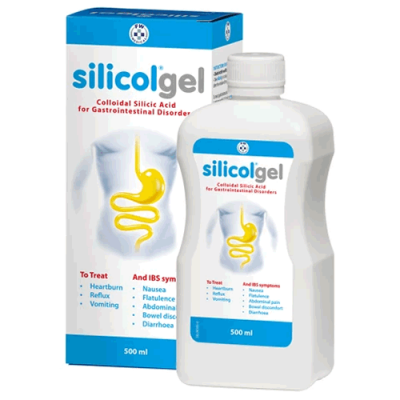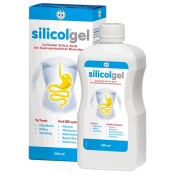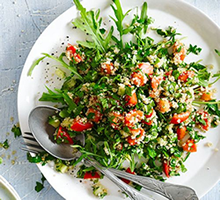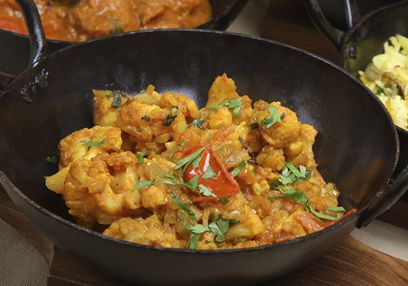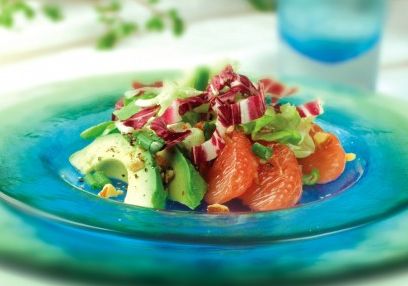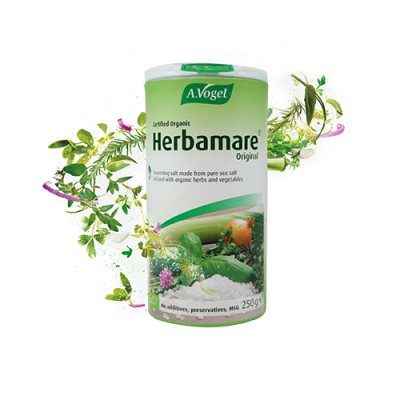1. Do eat a varied diet
In ‘IBS dos and don’ts: part one’ I mentioned that, amongst other things, milk, bread, yogurt and spicy foods can all cause problems for IBS sufferers. If you try to stay clear of all of these things you may feel that you haven’t many options left at meal times and you may even feel like you have to stick to the same ‘safe’ foods time and time again. However, a non-varied diet actually increases the likelihood that you will experience IBS symptoms because it reduces your nutrient intake.
So, instead of cooking the same meals on repeat every week try mixing things up with a few low-risk foods. You can explore my blog ‘What can I eat with IBS?’ for some ideas but in the meantime I’ve listed some recipes here:
- Breakfast: Blueberry pancakes (vegan and gluten free), fig and caramel overnight oats (dairy free)
- Lunch: Carrot, lentil and coriander soup, quinoa salad
- Dinner: Lentil ragu with zucchini noodles, tomato and lentil pasta (vegan and gluten free)
- Snacks: Cinnamon sugar chickpea cookies, apple and cinnamon flapjacks (oil and refined sugar free)
2. Do exercise
A little bit of activity could be beneficial if you are suffering from IBS because this releases feel-good hormones known as endorphins which can reduce stress levels. As stress often plays a part in both the development of IBS and the severity of symptoms, incorporating more exercise into your routine could help to ease things a little. Plus, there are so many classes and activities available now that, with a little bit of research and even trial-and-error, you should be able to find something that suits you!

3. Do up your vitamin D intake
Although there is still some more research needed into the issue, there is some suggestion that vitamin D could reduce the severity of IBS symptoms. It could alter the balance of good bacteria in the gut for example, and support mood thus helping to reduce the prominence of cramps and bloating.
As I say, the research here is still in progress but as vitamin D can have other benefits for the muscles, immune system and bones, it’s worth upping your intake anyway. If you do decide to try a supplement i'd recommend turning to Lamberts 400iu tablets as provides a dose within the daily recommended amount.
4. Do try silicol gel
I have mentioned this product in many of my previous blogs and for very good reason! Silicol gel addresses a range of IBS symptoms including heartburn, stomach ache and diarrhoea but how does it work? Well, Silicol gel lines the stomach and intestines then binds to toxins and pathogens to facilitate their safe removal from the body. It also absorbs excess acidity and gas which helps to ease stomach discomfort. So, whether you’ve had IBS for years or have only recently developed the problem, make sure you do try Silicol gel!
Silicol®gel for symptoms of IBS including nausea, flatulence, stomach ache, diarrhoea and discomfort.
£9.15 (200ml) In Stock Get it tomorrow, 15th May.
5. Do drink plenty of water
From your skin to your mood, water has a lengthy list of benefits for the body and it can even aid digestion too. That’s because it encourages the movement of waste through your digestive system and softens poo thus reducing the likelihood of constipation.1 Also, if you’ve been suffering from diarrhoea as a result of IBS, keeping up your water intake will help to rehydrate you. Remember though, drinking with meals is best avoided if you have IBS so drink lots outside these periods to keep your intake up.

6. Do try bitters before eating
Consuming a small portion of bitter foods before your main meal can also help IBS as it prepares the stomach and gastrointestinal tract for digestion by stimulating the release of digestive enzymes and juices. Beneficial bitter foods include dandelion, watercress and endive so mix these up into a salad and you have the perfect starter!
Alternatively, you could opt for a bitter herb tincture such as Centaurium. This can be consumed twenty minutes before a meal and in the periods in between food to aid digestion. It is made from the extract of organically grown herbs and although the flavour is quite strong, that’s how you know it is working!
7. Do try herbal tea
Herbal tea makes a great substitute for caffeine-filled drinks like coffee and regular tea which are known to worsen IBS. Caffeine can prompt the body’s fight or flight response after all, thus taking attention away from digestion. Also, herbal teas are much gentler on the stomach than caffeinated drinks so again, it’s less likely to cause any upset here. One of my favourite herbal teas is Jan de Vries Dutch Herbal Tea which is made from a wide mix of herbs including chamomile, peppermint, strawberry and sage.
8. Do warm your food
Warm foods are easier to digest so, where possible, if you have IBS this is another tip you should try out for yourself. Porridge, stewed fruit, soup, as well as your regular cooked dinners such as curries and pasta are just a few suggestions that cover all meal times.

9. Do try prebiotics
A prebiotic such as Molkosan will support the good bacteria in the gut and thus help to maintain it long-term. In this way it could help IBS sufferers especially, if we consider the fact that if bad bacteria is allowed to thrive, it is more likely to bring on problematic symptoms like indigestion.
Molkosan is particularly good for those with IBS as it is lactose free and can even be incorporated into a smoothie as a delicious snack!
10. Do keep a food diary
If you are unsure which foods are causing your IBS symptoms I’d recommend you keep a food diary for a few weeks as this will highlight any correlation between what you’re eating and the development of symptoms. For some more information on how to complete a food diary, have a little look at my blog on the topic.







